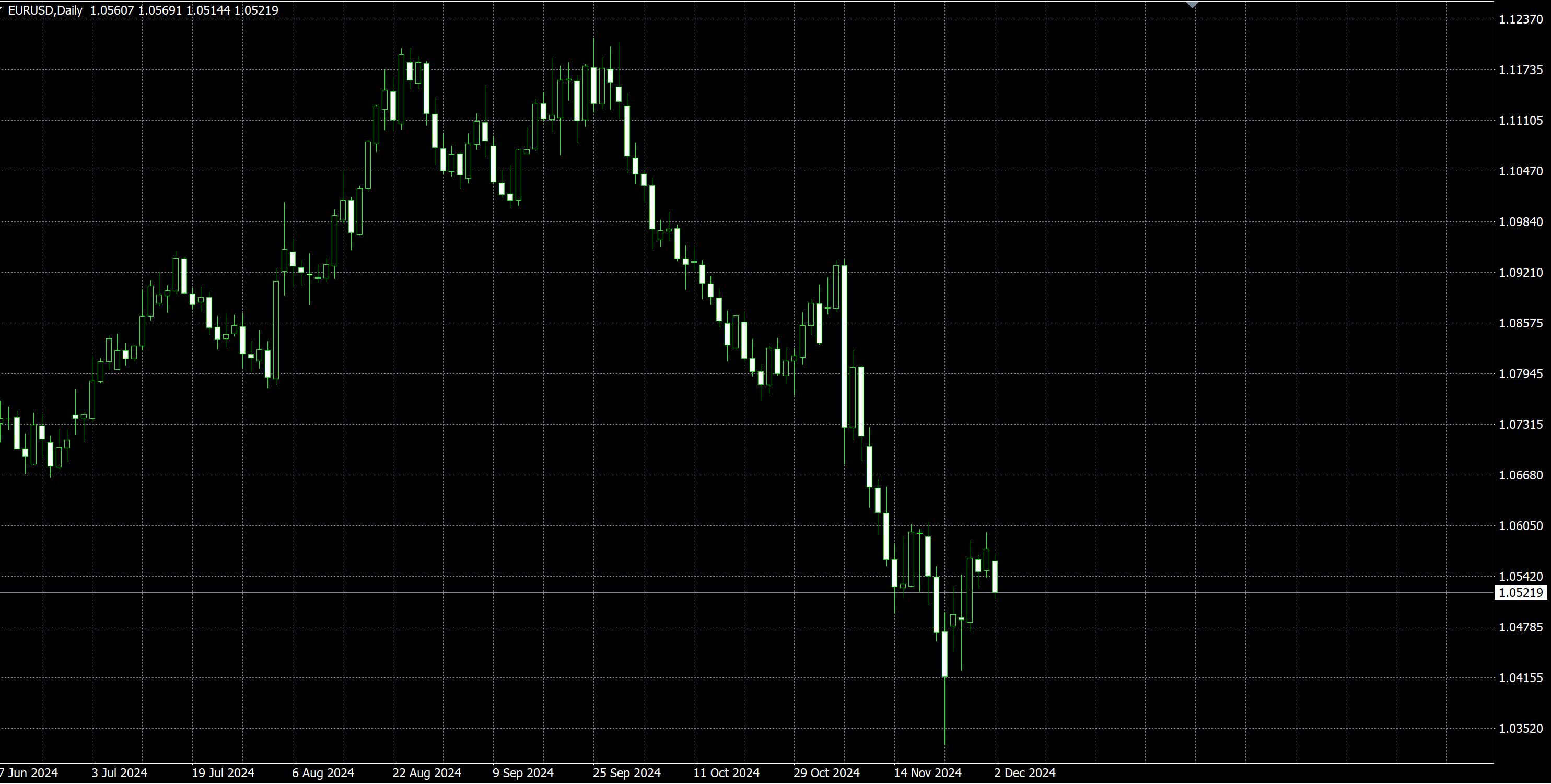Economist: It is expected that the EUR/USD will touch or even fall below parity by 2025
Americans who travel to Europe next year may buy some bargains because of the EUR/USD exchange rate. Economists say that the euro has weakened against the US dollar in recent weeks and is expected to further decline in 2025, possibly even until 2026.
Brendan McKenna, an international economist at Wells Fargo Economics, said, "This is a good thing for American tourists traveling to Europe." He said their purchasing power could increase "quite significantly.
For decades, the euro has been consistently stronger than the US dollar, making it more expensive for tourists to purchase goods and services priced in euros.
But economists say that it is expected that the upcoming Trump administration will introduce policies such as tariffs, as well as other economic developments, to boost the US dollar and devalue the euro.
Economists predict that the euro to dollar exchange rate will fall to parity next year, or even below parity, which means that the exchange rate between the two currencies is 1:1.
Out of the 27 member states of the European Union, 20 use the euro: Austria, Belgium, Croatia, Cyprus, Estonia, Finland, France, Germany, Greece, Ireland, Italy, Latvia, Lithuania, Luxembourg, Malta, the Netherlands, Portugal, Slovakia, Slovenia, and Spain.
James Reilly, a senior market economist at Capital Economics, wrote in a research report on November 11th that the euro parity has now "returned to a highly probable scenario". He wrote, "After Trump's victory, the euro suffered greater losses than most currencies, and we suspect that this situation will soon improve
Reilly stated that the Intercontinental Exchange Dollar Index (DXY) has also been continuously rising recently. Reilly said that the index rose for the eighth consecutive week last week, and this "extreme rise" has only occurred three times since 2000.
Travelers can try to utilize these currency dynamics and shop again next year.
Economists say that tariffs and trade policies are the main factors affecting the dynamics of the euro dollar exchange rate.
Trump has proposed extensive tariffs on global trading partners. During the election campaign, he proposed imposing tariffs of 10% or 20% on all imported goods, including those from the European Union. Last Monday, Trump vowed to impose an additional 10% tariff on major Asian countries and a 25% tariff on all products from Canada and Mexico on his first day in office, indicating his willingness to impose import taxes. However, the ultimate scope and magnitude of tariff policies are still unclear.
Economists say that imposing tariffs on Europe may reduce its export demand, leading to economic weakness and a depreciation of the euro. Economists say that interest rate differentials also have a significant impact on the relative exchange rate trend. They expect the interest rate differential between the United States and the eurozone to widen, partly due to the impact of tariffs.
Reilly stated that tariffs are expected to cause inflation in the United States. These import taxes are paid by American companies, which typically pass on the rising costs to consumers.
Federal Reserve officials may maintain higher interest rates for a longer period of time to bring inflation back to their long-term target levels.
Economists expect the European Central Bank to continue cutting interest rates. McKenna from Wells Fargo stated that tariffs on the eurozone could lead to further interest rate cuts by the European Central Bank to support the European economy, resulting in widening interest rate differentials that are "significantly" favorable for the US dollar.
There are other factors as well.
Reilly stated that the US economy has been "much better than anyone expected" in the past year or two, in stark contrast to Europe.
In addition, McKenna stated that financial markets do not like uncertainty.
McKenna stated that if questions surrounding Trump administration policies disrupt the market in the short term, investors may seek safe haven assets denominated in US dollars, such as US Treasury bonds, in order to strengthen the US dollar.
Reilly said, of course, Europe may also retaliate with its own tariffs, or punish Americans by raising certain consumer prices (such as air ticket prices). He said, "We don't think this will happen. We believe that Europe wants as much free trade as possible

EUR/USD daily chart
Tips:This page came from Internet, which is not standing for FXCUE opinions of this website.
Statement:Contact us if the content violates the law or your rights
